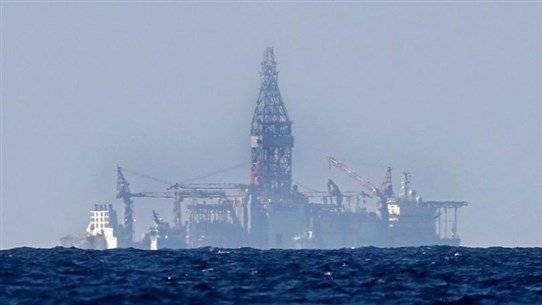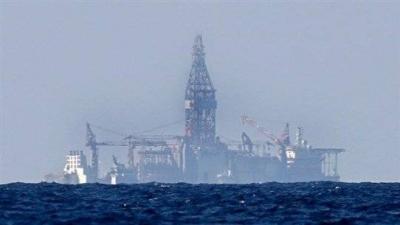Two key presidential observations regarding the American response are that Lebanon must not engage in signing an agreement with Israel, and the second is to assert "Lebanon's non-involvement in any compensation" to Tel Aviv. If these observations are overlooked, "Lebanon will sign the draft within days, not weeks." This summary of comments on the American mediator Amos Hochstein's paper for maritime demarcation was expressed by the Speaker of Parliament Nabih Berri, reflecting the positive atmosphere that prevailed during the Baabda presidential and technical meetings. The Speaker, who entered the Baabda meeting praying, "God willing, it will be good," emerged saying, "It is good and a half."
There is a general Lebanese relief regarding the demarcation file. Sources from the meetings mentioned that a mood of relief prevailed during both meetings. In the technical team meeting, each party presented its observations on the paper submitted by the American mediator, which included both substantial and minor remarks, but overall, they were merely notes aimed at affirming Lebanon's rights and clearing up any ambiguities in the wording of the text or paragraphs.
Informed sources confirm to "Asas" that the attendees agreed to submit the same observations, as Lebanon will request amendments to some paragraphs and clarifications to others. Berri clarified certain technical points, which were assured to him, while Mikati focused on presenting legal observations. It was agreed that the final comments would be drafted and sent back to the American mediator for consideration, with Lebanon expecting a response as soon as possible to expedite the steps.
The same sources pointed out that the military representative expressed support for the observations raised about the agreement, noting that one of the agreed-upon points concerns compensation to the Israeli side. In this context, Lebanon will demand an increase in phrases that would eliminate any ambiguity regarding this issue and assert that Lebanon cannot have any connection to compensation at any point in time.
Lebanon's initial observations on the demarcation draft intersect with what other sources confirm to "Asas," which also participated in the meeting and in drafting comments on Hochstein's paper, indicating that "the observations brought by Mikati and Berri were consistent with what Aoun proposed, with Bassil playing a role in it."
Among the most notable observations are:
- Affirming Lebanon's defensive rights in the waters along the 23rd line.
- Clearly defining the maritime border points with the Israeli enemy, thus stating that "we are not in the process of signing a treaty or agreement with them."
- Completely separating the maritime boundaries from the land boundaries, where Lebanon still claims land occupied by Israel, with any extensions of any Lebanese field within Israeli waters being inherently Lebanon's rights without any compensation. The intent of these observations is to eliminate any future ambiguity regarding the interpretation of the clauses "and to limit Israel's intentions to manipulate or evade adherence to the agreement," according to a source who requested anonymity.
The devils in the details have become very small. In this context, Bousselb clarified that Lebanon is not giving a "formal response to Hochstein, but rather remarks, and the devils hidden in the details have become very small," indicating that "Lebanon's final position will be presented when the final offer arrives. Lebanon has obtained all its rights in the Qana field, and the observations made are legal, logical, and based on being a rightful owner," concluding that "if the observations are taken as we agreed, we are talking about days to sign, not weeks, and the disputed areas will remain disputed until resolved."




